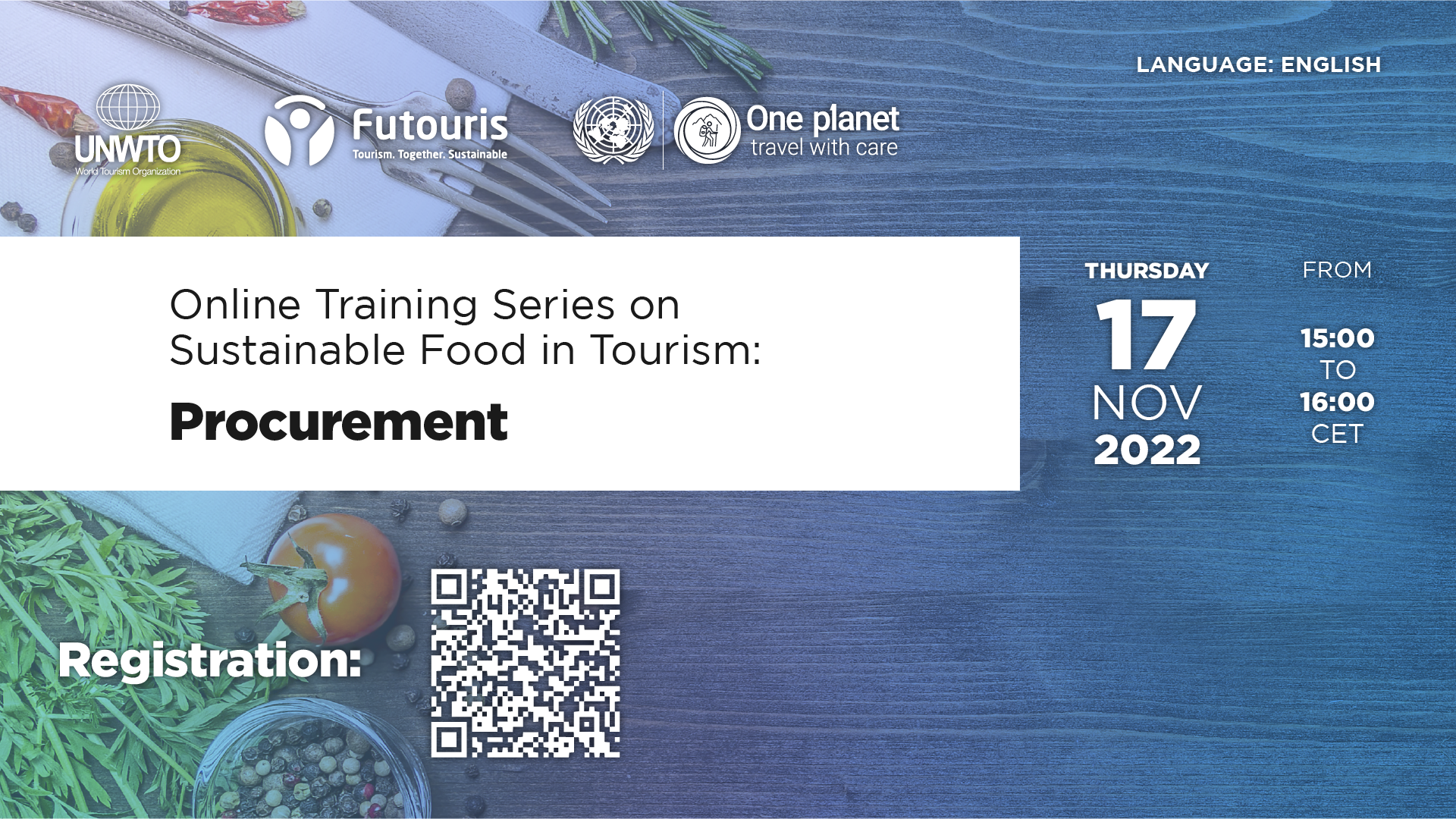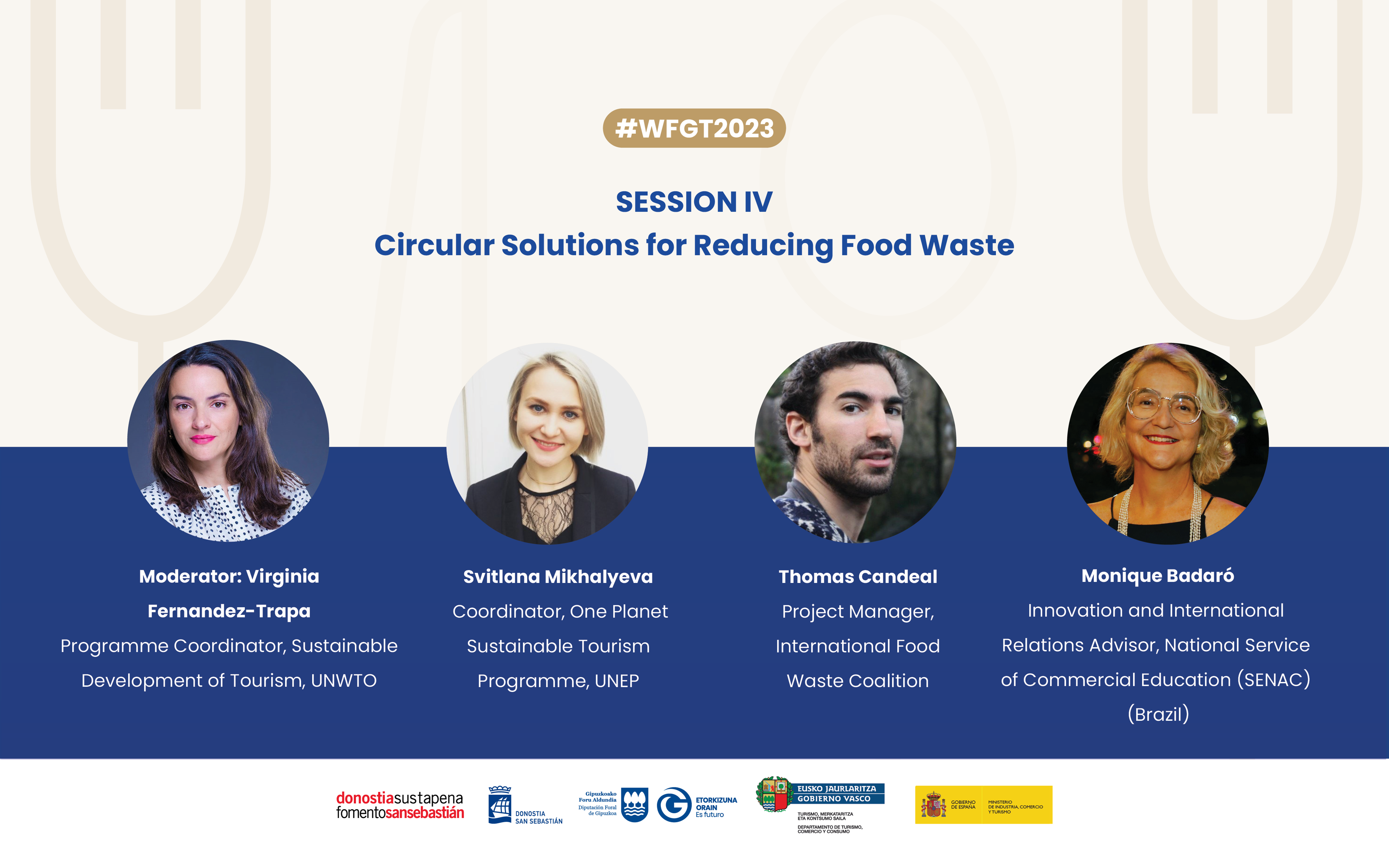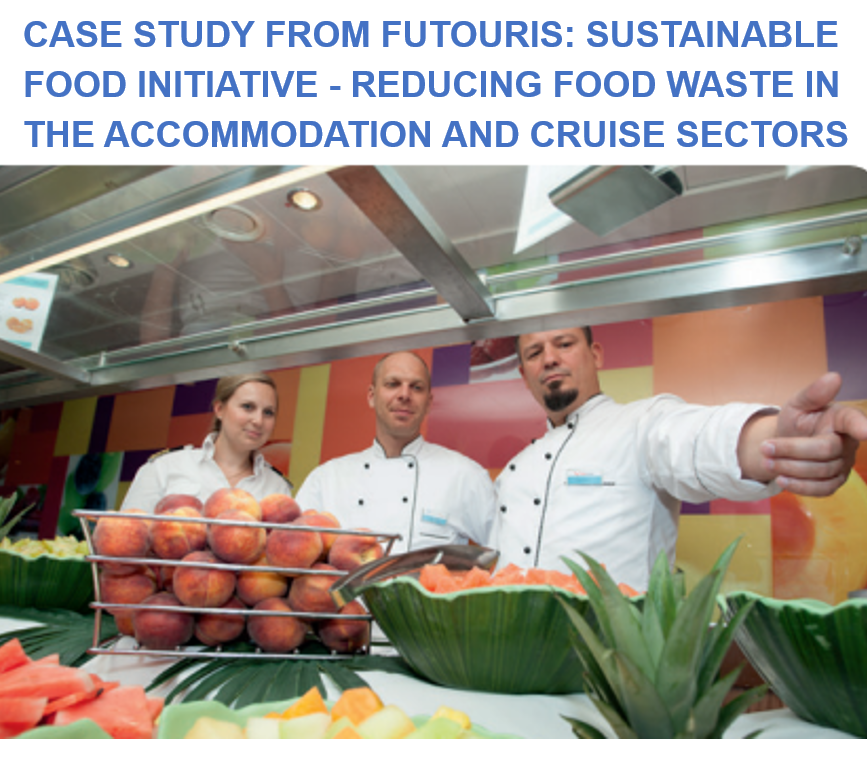Online Training Series on Sustainable Food in Tourism: Procurement
Food procurement policies can significantly reduce climate impacts, protect and promote biodiversity, increase fairness along food supply chains, and support local communities. This online training session discusses the key aspects to consider in sustainable food procurement policies, such as sourcing climate-friendly and organic food, promoting biodiversity and conserving endangered species (especially seafood and fish), the concept of fair trade that provides better trading conditions for marginalized producers and workers. It will also cover sourcing local food to support a country's economy both directly through payments and indirectly through job creation, protect the environment by reducing transportation emissions and packaging waste, and preserve local food cultures.
Online Training Series: Sustainable Food in Tourism
Sustainable food production and consumption is one of the most important levers to protect planet and people. One reason for this is the constantly and rapidly growing demand for food in a world whose population is expected to grow to over 9 billion people by 2050. At the same time, food producers around the world often do not receive a fair share of the global food trade and in many cases work under poor conditions. Additional pressure comes from greenhouse gas emissions caused by food production, which play a crucial role in climate change. Furthermore, the health aspect of food is a major concern, especially in modern societies, and rapid socio-cultural change raises the issue of protecting food cultures and traditions. While food consumption is considered by most tourists to be an important part of their trip, unsustainable food consumption can cause harm to tourists, locals, and destinations in general. Overuse of scarce resources, excessive food waste, and poor working conditions are some examples of areas where tourist food consumption has negative consequences for a destination. This online training series promotes the understanding and management of food in a holistic, sustainable way to ensure the future success of tourism businesses around the world.



